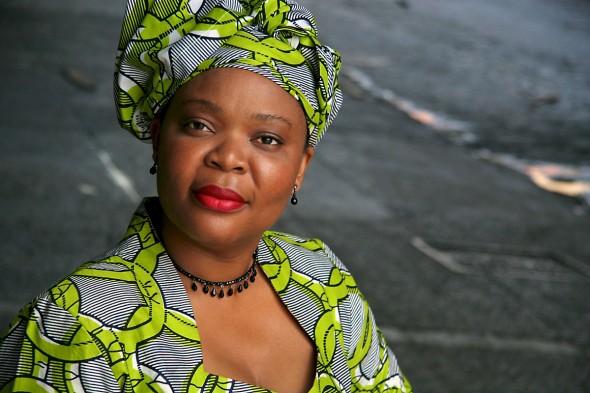School of Public Health celebrates 40 years

Liberian peace activist Leymah Gbowee, a 2011 Nobel Peace laureate, is the keynote speaker at the School of Public Health’s 40th anniversary gala April 13 at the Field Museum.
By Daniel P. Smith
When Bill Baldyga arrived at the School of Public Health as a research assistant in 1974, he immediately recognized the school’s ambitious spirit.
“It was a young, growing place, but there was universal excitement to make a real difference in the world,” says Baldyga, senior research scientist in the Institute for Health Research and Policy and one of the school’s DrPH graduates.
The school’s celebration of its 40th year culminates with a gala at the Field Museum April 13.
The keynote speaker will be 2011 Nobel Peace laureate Leymah Gbowee, a Liberian peace activist, social worker and women’s rights advocate who founded the Gbowee Peace Foundation Africa, based in Monrovia.
There’s much to celebrate. The school has developed maternal and child programs in Chicago-area hospitals and community centers, sparked the discipline of public health informatics and tackled cross-disciplinary projects on issues ranging from smoking cessation to adolescent nutrition.
In 1987 the school launched the Community Outreach Intervention Projects to combat HIV/AIDS, pioneering the use of community members, including former sex workers and drug users, as outreach workers.
Eight years later, Gary Slutkin, professor of epidemiology and international health, identified parallels between the epidemic of inner-city violence and infectious diseases. He founded the Cure Violence Project (formerly known as CeaseFire), using former gang members to curb inner-city violence in a similar manner.
Cure Violence “is out of the stream of what many would consider public health, but it’s an example of the bold, courageous thought that characterizes the school,” says current dean Paul Brandt-Rauf.
The school continues to expand its reach beyond Chicago with work on infectious diseases in Africa, international fieldwork by students and faculty and an online DrPH program.
The school has prepared more than 4,000 alumni for positions in public health, with graduates working in city, county and state public health offices as well as the Centers for Disease Control and Prevention.
“There’s a ripple effect we’ve created over these 40 years that we can be proud of,” says Sylvia Furner, associate professor emerita, who earned a master’s and Ph.D from the school, as well as an undergraduate degree from the College of Liberal Arts and Sciences.
The school recently launched a bachelor’s degree program in public health.
“This school is committed to not only thinking great thoughts, but in doing practical work with those great thoughts,” Brandt-Rauf says.
“That’s the legacy we’ll work to advance.”
— UIC Alumni magazine
